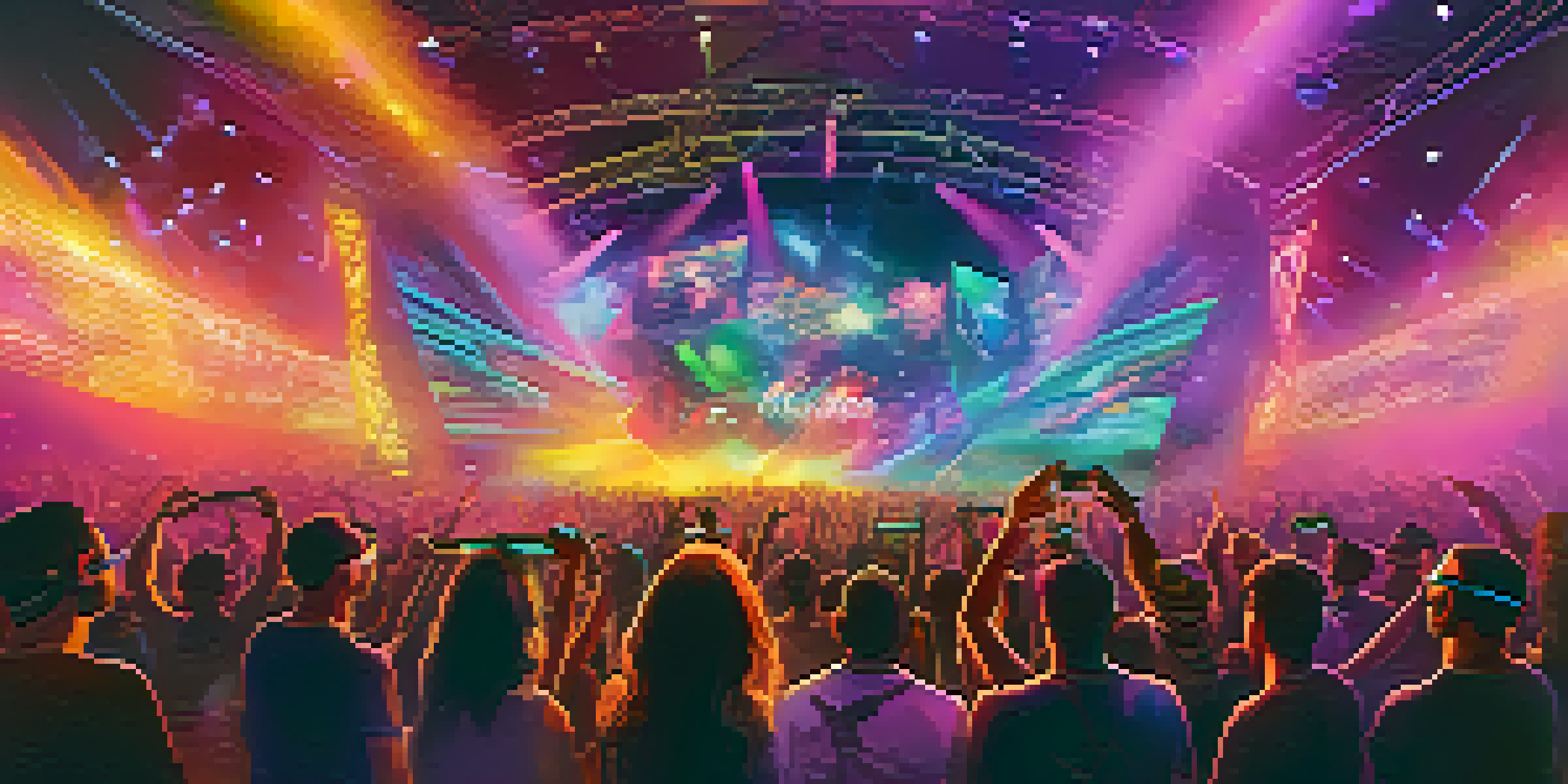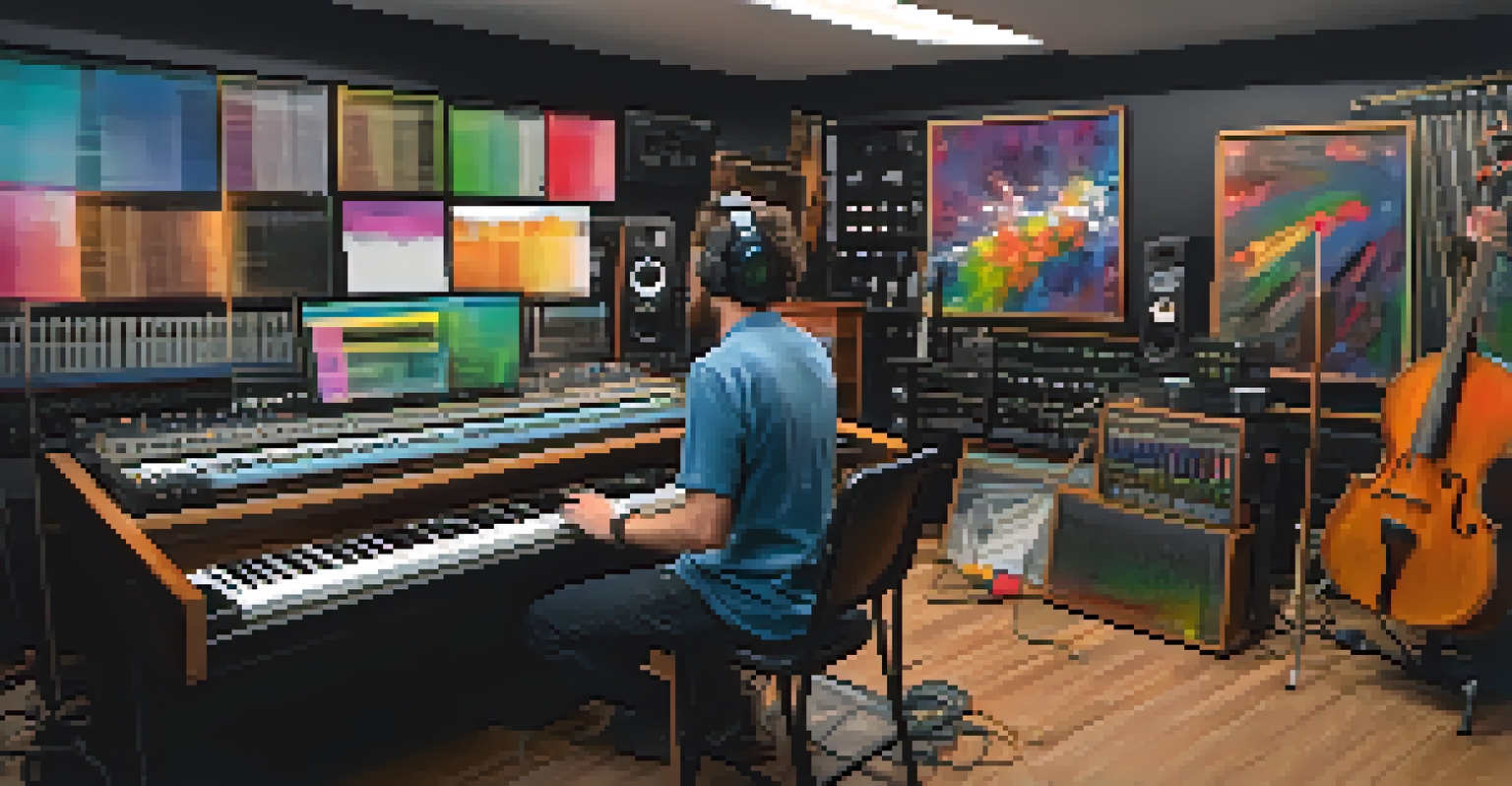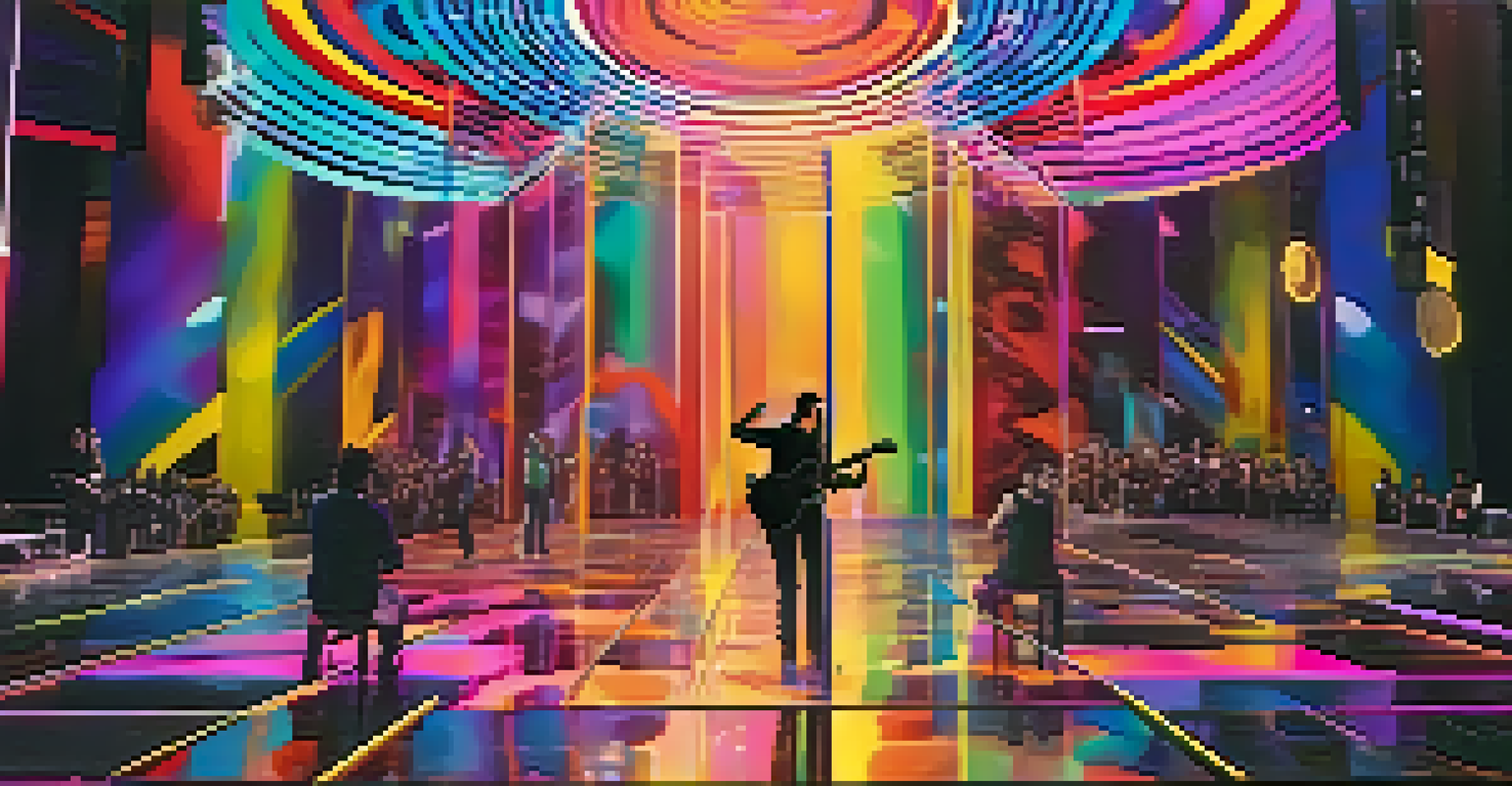The Future of Music Technology: Trends to Watch

AI and Machine Learning Transforming Music Creation
Artificial intelligence (AI) and machine learning are becoming game-changers in music production. These technologies can analyze vast amounts of data to help artists create music that resonates with audiences. For example, AI can suggest melodies, harmonies, or even lyrics, making the creative process more efficient and inspiring.
The future of music is about collaboration between humans and machines, where technology enhances creativity rather than replaces it.
As AI tools continue to improve, they will empower musicians to experiment with genres and styles they might not have explored otherwise. Imagine a songwriter using AI to generate a unique sound by blending traditional folk with electronic elements. This collaboration between human creativity and machine learning opens up exciting possibilities.
However, the rise of AI also raises questions about originality and authenticity in music. As machines take on more creative roles, we must consider how to maintain the human touch that makes music so special. The future will likely require a balance between technology and personal expression.
Virtual Reality Enhancing Live Music Experiences
Virtual reality (VR) is set to revolutionize the way audiences experience live music. Imagine donning a VR headset and being transported to a concert where you can stand right next to your favorite artist or explore a vibrant virtual venue. This level of immersion can make concerts accessible to fans who may not be able to attend in person.

Moreover, VR can enable artists to create unique performances that blend music with stunning visual elements. This fusion can elevate the overall experience, creating a multisensory journey that keeps fans engaged. Just think of it as a video game where you become part of the music.
AI Enhancing Music Creation
AI and machine learning are revolutionizing music production by suggesting melodies and harmonies, enabling artists to explore new genres efficiently.
As the technology becomes more mainstream, we're likely to see a rise in virtual concerts and music festivals. This trend not only caters to a global audience but also opens up new revenue streams for artists. The future of live music may very well be a blend of the physical and the digital.
Blockchain and Music Rights Management
Blockchain technology is making waves in the music industry, particularly in rights management. By providing a transparent and secure way to track music ownership and usage, blockchain can help artists get fair compensation for their work. This is crucial in an era where digital piracy and streaming have complicated traditional revenue models.
Music is a world within itself; it's a language we all understand.
With blockchain, smart contracts can automatically distribute royalties to artists whenever their music is played. This means that musicians can receive payments without relying on intermediaries, making the process more efficient and equitable. Imagine a world where artists are paid fairly and promptly for their hard work.
However, the implementation of blockchain in music is still in its early stages. As the industry adapts to this technology, it will be essential to educate all stakeholders—artists, labels, and fans—on how it works. The potential for change is enormous, and it could reshape the music landscape for the better.
Streaming Services Evolving with Personalization
Streaming services have become the backbone of music consumption, and they're continuously evolving to enhance user experience. The future of these platforms lies in personalization, where algorithms analyze listening habits to curate tailored playlists. This not only helps fans discover new music but also fosters a deeper connection with their favorite artists.
Imagine a service that learns your mood and provides the perfect soundtrack for every moment—whether it's a workout, a study session, or a cozy night in. This level of customization can make the listening experience feel more intimate and engaging. It's like having a personal DJ who knows exactly what you need.
VR Transforming Concert Experiences
Virtual reality is set to change live music by allowing fans to immerse themselves in concerts from anywhere, creating unique and engaging performances.
However, while personalization is key, it's essential for streaming platforms to maintain diversity in their offerings. Balancing algorithm-driven recommendations with human curation ensures that users don't miss out on fresh and diverse sounds. The challenge will be to create a harmonious blend of technology and human touch in the streaming experience.
The Rise of Music Production Apps and Tools
As technology advances, music production tools have become more accessible than ever. With the rise of music production apps, aspiring musicians can create professional-quality tracks right from their smartphones. This democratization of music-making means that anyone with a passion for music can express themselves creatively, regardless of their background.
These apps often come equipped with user-friendly interfaces and powerful features, allowing users to experiment with sounds, beats, and effects easily. For instance, platforms like GarageBand and FL Studio Mobile empower creators to produce high-quality music on the go. It's like having a full studio in your pocket!
However, while these tools make music production more accessible, they also raise questions about the oversaturation of content. With so many creators vying for attention, it will be interesting to see how artists distinguish themselves in this crowded space. The future will likely see a blend of creativity and strategic marketing as musicians navigate this new landscape.
Social Media's Role in Music Discovery and Promotion
Social media has transformed the way artists connect with their audiences and promote their music. Platforms like TikTok and Instagram are now key players in music discovery, often launching songs into viral hits. This shift has given rise to a new generation of artists who can reach global audiences without traditional gatekeepers.
Imagine a musician sharing snippets of their work on social media, leading to millions of views and eventually a record deal. This direct connection between artists and fans fosters a sense of community and loyalty. Social media allows artists to build their brand and engage with listeners in real-time, creating a dynamic relationship.
Blockchain Securing Artist Rights
Blockchain technology offers a transparent method for tracking music ownership and ensuring fair compensation for artists through smart contracts.
However, the fast-paced nature of social media can be overwhelming for artists. With trends changing rapidly, staying relevant requires constant adaptation. The future will likely see artists harnessing the power of social media while finding their unique voice in a sea of content.
Augmented Reality Bridging Music and Technology
Augmented reality (AR) is another exciting development in the world of music technology. By overlaying digital elements onto the real world, AR can enhance live performances and music videos. For example, imagine attending a concert where visuals seamlessly blend with the music, creating a captivating experience that draws you in.
This technology not only enriches the audience's experience but also provides new creative avenues for artists. Musicians can create interactive music videos where fans can engage with the content in innovative ways. It's like stepping into a music video and becoming part of the narrative.

As AR technology becomes more accessible, we're likely to see more artists experimenting with this medium. The potential for storytelling through music and visuals is immense, and it could redefine how we experience our favorite songs. The future is bright for artists willing to embrace this blend of music and technology.